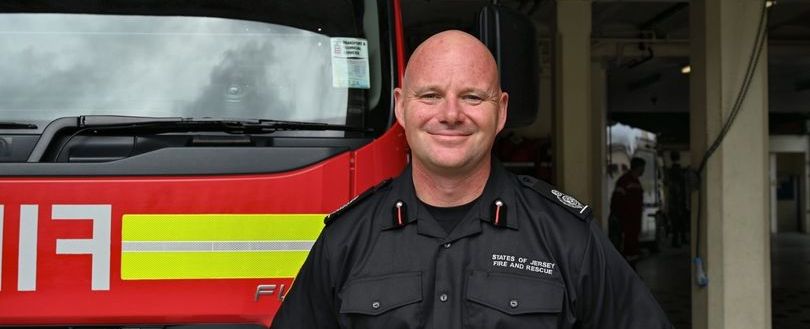
Jersey Fire Service Faces Similar Risks to Major UK Cities but with Limited Resources
Like it? Share it!
30 September 2024
The Jersey Fire and Rescue Service encounters "the same risks as a large urban city in the UK" but operates with significantly fewer resources, according to the Island’s new Deputy Chief Fire Officer, Bryn Coleman.
Mr. Coleman, who joined the Jersey Fire and Rescue Service in August, previously served with the Nottinghamshire Fire and Rescue Service, where he managed a team of around 850 firefighters. In comparison, Jersey’s service has just 120 firefighters.
“The firefighters on the Island have a more diverse range of skills than what they would in the United Kingdom,” Mr. Coleman explained. “They wouldn’t do marine rescue in the UK. They may do cliff rescue, but they certainly wouldn’t be as heavily involved with protecting the coastline from three miles out.”
Unlike fire services in the UK, which "don’t operate in isolation" and can rely on support from neighboring counties, Jersey’s geographic position limits such external assistance. “We’ve got in the region of probably four or five fire appliances, and, of course, the geography is surrounded by water. So we’ve only got the firefighters that we’ve got, and it’s very difficult to get immediate support,” Mr. Coleman noted.
Despite being a smaller service, Jersey faces “all the risks of a large urban city in the UK,” he said, citing the presence of critical infrastructure, such as an airport, prison, hospital, and ferry port.
Since moving to Jersey, Mr. Coleman has already started considering improvements in training and modernisation of fire safety legislation, ensuring the Island is prepared for the same challenges as the UK. “All the issues that we’re experiencing in the UK with high-rise buildings will be prevalent here,” he said.
His comments follow concerns raised about the London Fire Brigade’s handling of the Grenfell Tower fire in 2017, where 72 lives were lost. While individual firefighters were praised for their bravery, the service itself was found to suffer from “a chronic lack of effective management and leadership,” which hindered its response.
In Jersey, the government is keen to address fire safety in relation to the Island’s 33 high-rise buildings (eight storeys or more). “We’re working on a modernization programme,” Mr. Coleman said.
He added: “The government’s investing in the Fire and Rescue Service, and that’s part of the programme that I’m here for. As part of that investment programme, we’re looking to recruit more firefighters and increase our capacity.”
Mr. Coleman brings with him nearly three decades of experience, having served as an area commander in Nottinghamshire, head of technical rescue, and the UK’s lead expert on water rescues. He also acted as a flood rescue advisor to the UK government.
He emphasised that climate change is making flooding more frequent, due to extreme weather conditions. “Sometimes we get really hot weather, which causes the Fire and Rescue Service to be busy; we’re also seeing a lot of wet weather simultaneously with this heat, and that increases the amount of flooding,” Mr. Coleman explained.
Safety Tips from the Deputy Chief Fire Officer
Mr. Coleman shared the following safety advice for Islanders:
- Download the “what3words” app, which uses three random words to identify precise locations. This can be helpful when sharing your exact location with emergency services.
- Purchase e-bikes from reputable sellers and ensure they are charged safely, using the correct cables and parts.
- Install smoke alarms on all floors of your home.
View the source.
Our eNews provides regular insight into industry trends, news headlines, and product and service information. For more articles like this Subscribe to our enews.
Related news
-
Record Rise in E-Bike and E-Scooter Fires Across London
28 January 2026
Related resources
-
Passenger Service Vehicle - Guidance Note
05 September 2023
